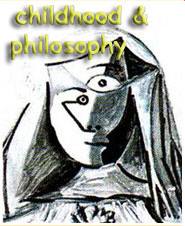territory, childhood, words and to fabricate a problem: ways of inhabiting
DOI:
https://doi.org/10.12957/childphilo.2017.26375Keywords:
infância, território, movimento, devir, estiloAbstract
This experience record aims, more than anything else, to fabricate a problem. A problem that has to do with children and adults and the worlds they share in a school of early childhood education. Already, a question arises: would that be worlds or territories? Is it possible that when considering the relationship between worlds and territories and who creates them, it matters more the movements that made them be them the fact that they can or cannot, and how could they, be shared? That the sharing of a world or territory is not in itself as important as the movement they provoke as well as provoke them to be? That is, it does not matter the sharing of something; this thing we call “common” concerns something that does not translate into a share? An animal adopted after its death, and the death of an animal; the various readings of a story; the definition of a concept and what a word means; a reading of an image. All these, events in a school of early childhood education. Events that intertwine to others. Could they find meaning in words like territory, movement, world, place, inhabit, play? How do they entwine, traverse each other, collide? Movements that urge us to establish territories in markings, borders and boundaries that constitutes them as well as ourselves, provoke encounters with people, ideas, movements. Do we find ourselves? Others? And which "selves" and which "others" are there in ourselves? Traversed by childhood, dragged by it, I seek a style to express this encounter. An encounter with childhood that gives rise to new meanings, meanings that could not be the same, that are always “others”, that differ. Can childhood find ways to inhabit a word, to inhabit the language? An exercise of imagining where territories, childhood, language can encounter; where we encounter each other. How to name such a place: common, singular, we-others? If we constitute ourselves in identifications that lead us always to others, to differ, what makes us equal, what makes us identify us-others?




